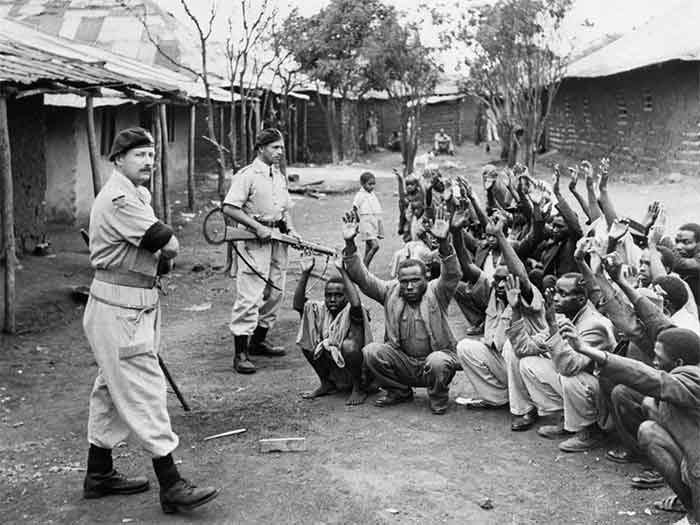 It is instructive to compare the role of trade unions in Kenya’s War of Independence under Mau Mau with the situation under Maji Maji, the Tanzanian people’s war of liberation (1904-1907). Whereas there was little working class involvement in Tanzania, Mau Mau was influenced in its ideological outlook as well as the strategies by the trade union movement. It was the activists in the East African Trade Union Congress who were the ideological force behind the resistance movement. They introduced the key aspect missing from Maji Maji: class consciousness and class ideology, maintaining that the enemy was not white people as such, but the class — the bourgeoisie — they represented and the ideology —capitalism —they represented. Mau Mau was thus guided by anti-capitalist ideology and saw the foreign governments as well as the Africans who sided with imperialism as the enemy of working people of Kenya. It is no coincidence that Mau Mau waged a war on two fronts: against the colonial administration and White settlers on the one hand and against the Kenyan homeguard collaborators with imperialism, on the other.
It is instructive to compare the role of trade unions in Kenya’s War of Independence under Mau Mau with the situation under Maji Maji, the Tanzanian people’s war of liberation (1904-1907). Whereas there was little working class involvement in Tanzania, Mau Mau was influenced in its ideological outlook as well as the strategies by the trade union movement. It was the activists in the East African Trade Union Congress who were the ideological force behind the resistance movement. They introduced the key aspect missing from Maji Maji: class consciousness and class ideology, maintaining that the enemy was not white people as such, but the class — the bourgeoisie — they represented and the ideology —capitalism —they represented. Mau Mau was thus guided by anti-capitalist ideology and saw the foreign governments as well as the Africans who sided with imperialism as the enemy of working people of Kenya. It is no coincidence that Mau Mau waged a war on two fronts: against the colonial administration and White settlers on the one hand and against the Kenyan homeguard collaborators with imperialism, on the other.
What role did trade unions play in the struggle for independence in Kenya?

It is instructive to compare the role of trade unions in Kenya’s War of Independence under Mau Mau with the situation under Maji Maji, the Tanzanian people’s war of liberation (1904-1907). Whereas there was little working class involvement in Tanzania, Mau Mau was influenced in its ideological outlook as well as the strategies by the…
Written by
Shiraz Durrani
–
–
Originally Published in
